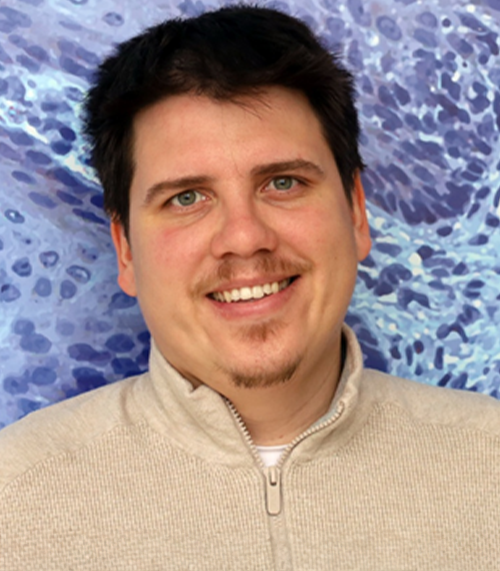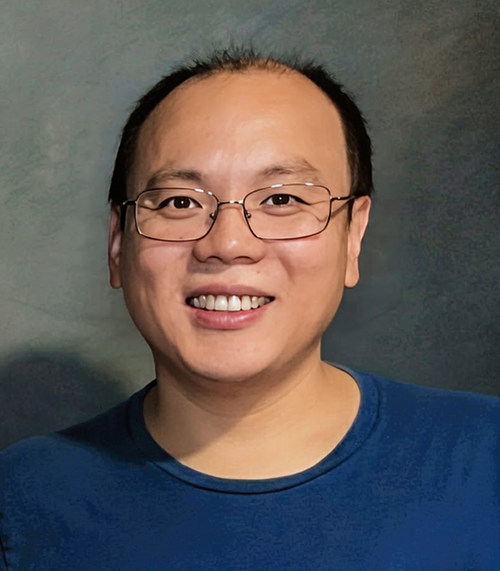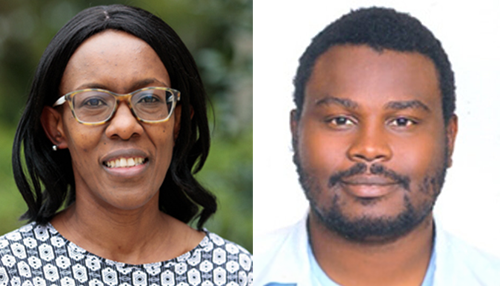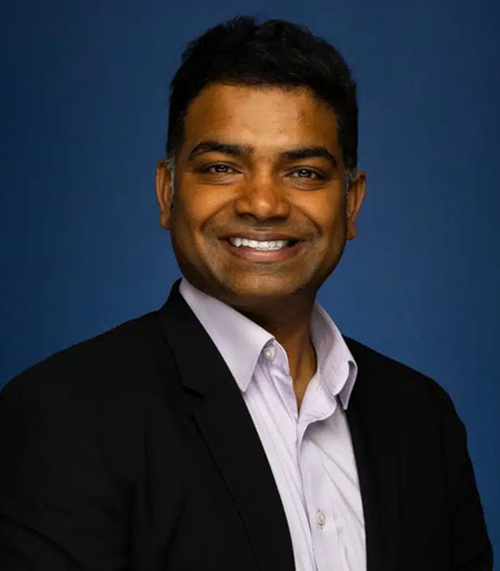Research Projects in 2026
Inter American University of Puerto Rico, Bayamón Campus
June 1 – July 24
The Puerto Rico Modeling and Simulation Data Science research program (PR-MODEL)
PR-MODEL explores hybrid modeling approaches that integrate data-driven techniques with deterministic frameworks to address complex real-world challenges such as societal violence in the aftermath of the COVID-19 pandemic. Participants will develop skills that are aligned to technical workforce demands such as data science, machine learning, modeling and simulation, and a larger world-view from the different cultural context of Puerto Rico.

Mentor: Carmen Caiseda is a distinguished research professor of mathematics and computational modeling at the Inter American University of Puerto Rico, Bayamón Campus (IAUPR). She has led multiple undergraduate research institutes that pioneered professional development programs for faculty and student teams in Data Science and Modeling & Simulation at IAUPR. She has mentored more than 50 undergraduate and graduate research projects and collaborated with interdisciplinary teams to address real-world challenges in epidemiology and socio-economic systems to promote social good.
Hormel Institute at University of Minnesota, Austin, Minnesota
June 15 – August 7
Computational Methods to Analyze Gene Expression Data Using MATLAB/Python and Machine Learning
This project examines how mathematical and computational tools can facilitate the understanding of patterns in gene expression data. Students will learn to apply mathematical techniques, including Fourier series and optimization methods, to analyze biological signals and identify meaningful patterns in large datasets. The project integrates data science, bioinformatics, and applied mathematics to classify genes and uncover relationships between gene behavior and disease mechanisms. Participants will be guided through data preprocessing, exploratory analysis, feature selection, and machine learning model development, utilizing algorithms such as random forests and neural networks. The goal is to demonstrate how mathematics can drive biological discovery, transforming complex genomic information into valuable insights about health and disease. Students will gain hands-on experience applying theory to real-world biomedical problems, learning useful skills in coding, modeling, and critical thinking.

Mentor: David Guinovart is an Assistant Professor at The Hormel Institute, University of Minnesota. With a Ph.D. in Applied Mathematics from the University of Central Florida, his research bridges mathematics, computer science, and bioscience. He develops mathematical and computational models to study biological systems, focusing on epidemiology, cancer, and material science.
Texas A&M University, San Antonio, Texas
June 1 – July 24
Exploring Nonlinear Worlds: Complex-Valued Solutions to the Eikonal Equation in Space
The eikonal equation is a fundamental equation that appears in many areas of science and engineering from geometric optics to wave propagation. While smooth real-valued solutions are always linear, exploring the complex-valued setting reveals a rich world of nonlinear phenomena. In this project, students will study nonlinear polynomial solutions to the equation in three dimensions, using techniques from both real and complex analysis to uncover new solution patterns and structures. Join us to explore fascinating nonlinear behaviors, uncover hidden mathematical beauty, and gain hands-on experience analyzing equations that link abstract theory with real-world applications!

Mentor: Qi Han is an Associate Professor of Mathematics at Texas A&M University–San Antonio. He earned his second Ph.D. in Applied Mathematics from University of Houston and was a Postdoctoral Fellow at Worcester Polytechnic Institute. Dr. Han’s research focuses on the analysis of partial differential equations motivated by problems in physics. He regularly serves as a reviewer for Mathematical Reviews and reputable international journals, and is an Associate Editor for Demonstratio Mathematica. At Texas A&M University–San Antonio, Dr. Han teaches a broad range of courses, mentors undergraduate research, and directs the Joint Admission Medical Program (JAMP), supporting under-resourced students. Dr. Han is deeply committed to helping students discover the beauty and power of mathematics.
University of Alabama, Tuscaloosa, Alabama
June 1 – July 24
A Bayesian Approach to Agricultural Conservation Patterns
This project aims to quantify and map agricultural conservation practices implemented across the United States using multi-year datasets from the Natural Resource Conservation Service Datasets (NRCS). Using an interdisciplinary approach combining mathematics and geography we will develop an integrated mathematical and empirical Bayesian model to assist our understanding of spatiotemporal distributions of agricultural conservation practices and will identify high- and low-conservation-practice hotspots nationwide. This information will help stakeholders in planning and targeting conservation resources.

Mentors: Abba Ramadan is an Assistant Professor of Mathematics at the University of Alabama. He earned his Ph.D. in Mathematics from the University of Kansas. His research focuses on the analysis of partial differential equations (PDEs) and their applications in areas such as fluid dynamics, materials science, and optics. He also has interests in probability and statistical modeling, particularly in applications to agriculture and the natural sciences.
Alongside his research, Dr. Ramadan is deeply committed to teaching and mentorship, striving to foster student engagement and success in mathematics. He is the recipient of the SIAM Postdoctoral Support Award.
Leah M. Mungai is an Assistant Professor in the Department of Geography and the Environment at the University of Alabama, Tuscaloosa. She earned her Ph.D. in Geography from Michigan State University. Her research focus is understanding human-environment interactions in agricultural systems and land use change modeling in locally heterogenous landscapes. She utilizes multi-methods with field observations, long-term spatial datasets to understand complexities in agricultural production across multiple scales.
As a researcher and educator, she combines knowledge and mentorship to help students thrive in their coursework.
Utah Tech University, St. George, Utah
June 8 – July 31
Modeling Climate-Driven Dynamics of Mosquito-Borne Diseases
Climate change is influencing the spread of mosquito-borne diseases such as dengue, Zika, and West Nile virus. This project lies at the intersection of mathematics, biology, and climate science, offering participants an opportunity to investigate how environmental conditions affect disease transmission. Participants will develop and analyze mathematical models describing interactions between mosquitoes, hosts, and the environment. The project will begin with foundational compartmental models (such as SIR and SEIR) and progress toward more realistic systems that incorporate temperature-dependent mosquito growth, rainfall effects, and immunity in host populations. Through the use of computational tools, participants will simulate diverse climate scenarios and interpret how variations in temperature and rainfall can shift disease dynamics between outbreak and stable, disease-free states. The research experience is designed to be accessible and supportive for all levels of preparation. Participants will gain skills in mathematical modeling, differential equations, computational analysis, and scientific communication. The program will culminate in written and oral presentations that synthesize their findings. By integrating mathematics with pressing public health challenges, this project enables participants to engage in meaningful, real-world research while developing analytical and computational skills applicable across many scientific disciplines.

Mentors: Vinodh Kumar Chellamuthu is an Associate Professor of Mathematics and Director of Research at Utah Tech University. His research focuses on applying mathematical modeling to real-world problems in epidemiology, climate science, and sustainability. He has mentored more than 70 undergraduates in applied mathematics projects, many of which address community and public-health challenges such as dengue and West Nile virus transmission. Dr. Chellamuthu is passionate about creating inclusive, hands-on research experiences that empower students to connect mathematics with meaningful societal impact.
Stay Up-to-Date with Email Alerts
Sign up for our monthly newsletter and emails about other topics of your choosing.

